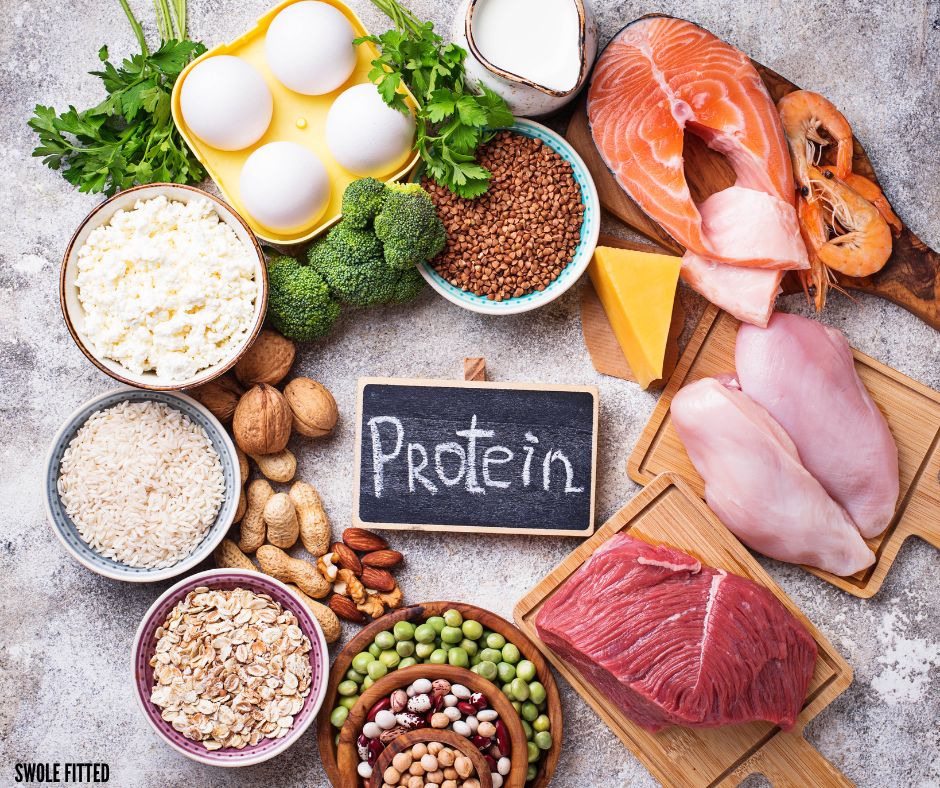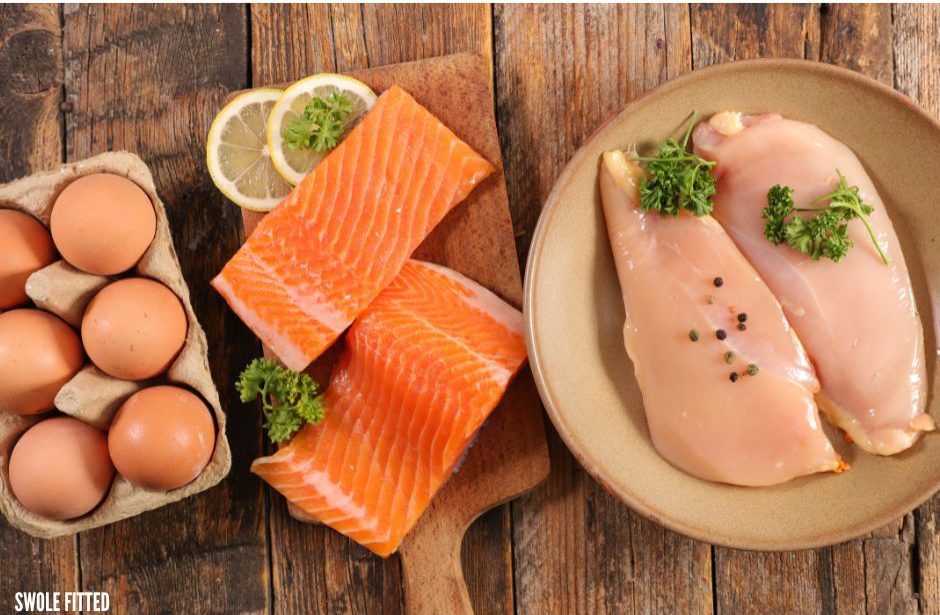Protein is a critical component of every cell in the body and is essential for building muscle mass, repairing tissue, and producing enzymes and hormones. At Swole Fitted Training, we emphasize the role of protein for those looking to build muscle and for anyone involved in regular physical activities.
Here’s everything you need to know about the role of protein in fitness and the best sources to include in your diet.

Why is Protein Important for Fitness?
- Muscle Repair and Growth. After a strenuous workout, your muscles need protein to repair the small tears that occur during exercise. This process is what helps them grow stronger and larger.
- Energy Source. While carbohydrates are the body’s preferred source of quick energy, protein plays a key role when carbs are depleted. This allows you to keep performing at your best.
- Hormone Production. Protein helps in the production of hormones that play vital roles in body processes, including metabolism and muscle growth.
How Much Protein Do You Need?
The amount of protein you need can vary based on your activity level, age, muscle mass, physique goals, and overall health. As a general guideline, if you are active, aim for approximately 1.2 to 2.0 grams of protein per kilogram of body weight per day. Those involved in heavy lifting or endurance sports may need to be on the higher end of this range.
Best Protein Sources
- Animal-Based Proteins. These include meat, poultry, fish, and dairy products. They are considered ‘complete’ proteins because they contain all the essential amino acids your body needs.

- Plant-Based Proteins. Sources like beans, lentils, tofu, and tempeh are excellent for vegetarians and vegans. They are typically lower in some essential amino acids but can be combined with other protein sources to make a complete protein meal.

- Protein Supplements. Whey protein is one of the most popular supplements, known for its efficiency in fast absorption and muscle recovery. Plant-based protein powders such as pea or rice protein are great alternatives for those avoiding dairy.

Incorporating Protein into Your Diet
- Breakfast. Start your day with a protein-rich breakfast to kickstart your metabolism. Think eggs, Greek yogurt, or a protein shake.
- Post-Workout. Consuming protein after your workout is crucial for optimal muscle recovery. A protein shake or a meal with lean protein and carbs can be very effective.
- Throughout the Day. Spread your protein intake throughout the day to keep your body’s protein synthesis going, which aids in muscle repair and growth.
Understanding Protein Quality
Not all proteins are created equal. The digestibility and the array of essential amino acids it contains define a protein’s quality. Animal proteins generally score higher in terms of protein quality, but you can combine many plant-based proteins (like rice and beans) to provide all the essential amino acids.
Protein plays a pivotal role in helping you achieve your fitness goals, whether you’re looking to bulk up, slim down, or maintain your current physique. Stay tuned for our next blog where we discuss dynamic warm-ups and cool-downs essential for every workout routine.
Embrace the power of protein in your diet with Swole Fitted Training — where we fuel your fitness journey with the right nutrients and guidance.



